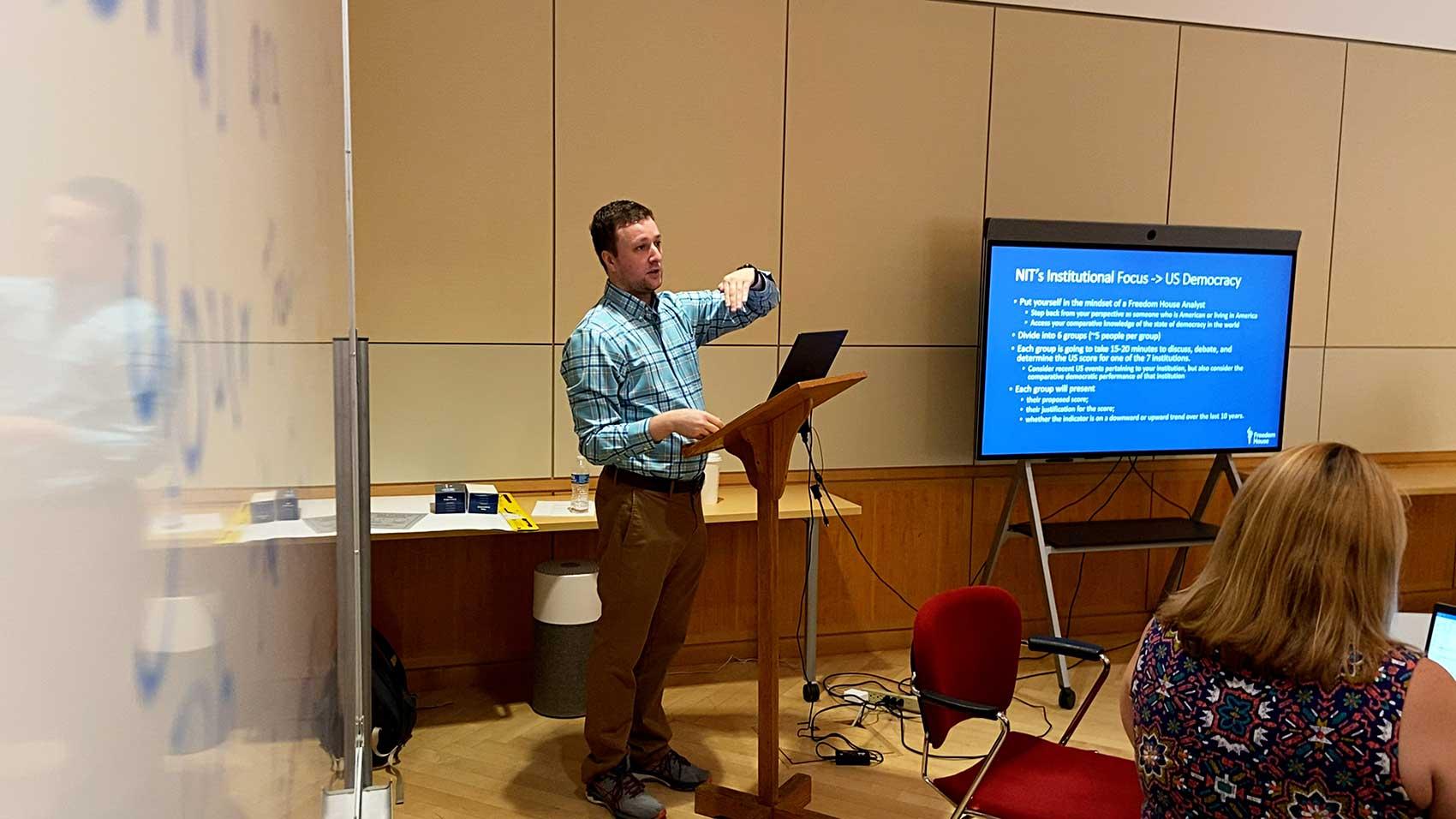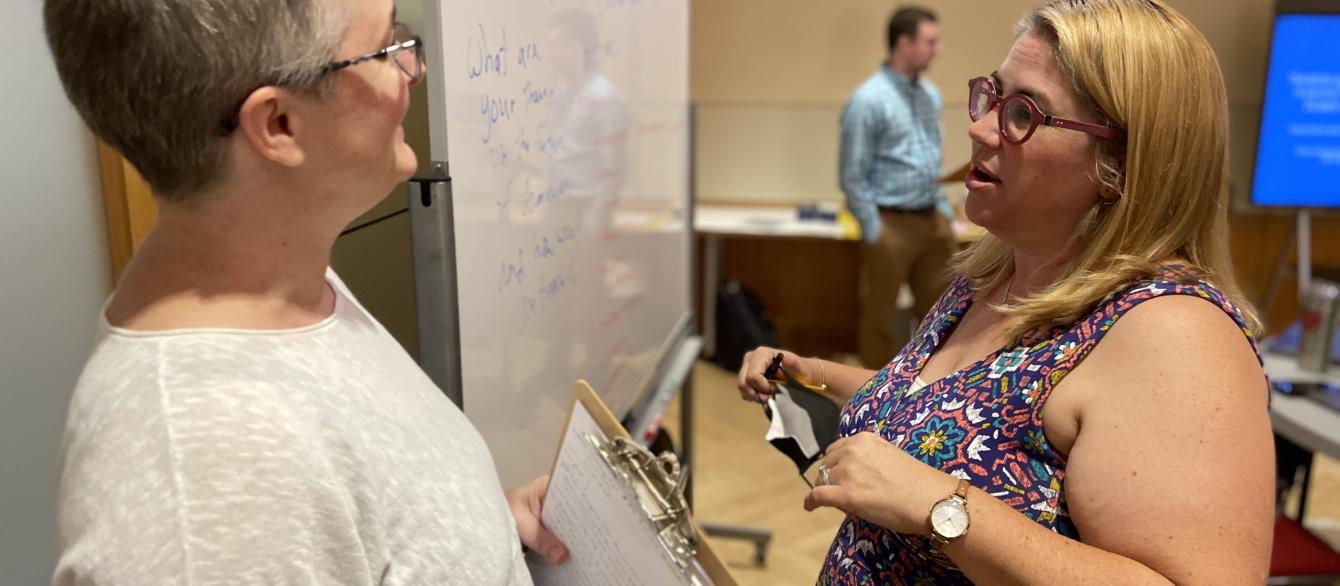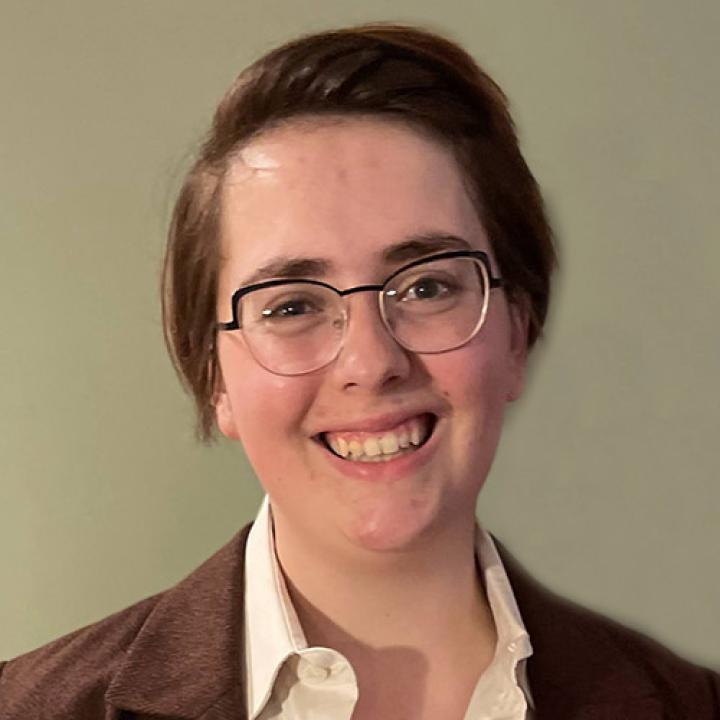During the COVID-19 pandemic, as many as 130 countries experienced some violation of democratic norms, according to a study in Social Science and Medicine. The future of democracy is a timely topic, and it’s one that thirty teachers were unafraid to tackle the first week of August at Harvard’s annual Global Studies Outreach Workshop.
Spanning three days, the workshop convened educators from across the country who gathered in Cambridge to discuss democracy, autocracy, and everything in between. They were teachers of various disciplines, ranging from middle school educators to high school teachers to community college professors, and all of them brought “respectful, sincere engagement, professionalism, and intellectual curiosity,” according to Joe Iuliano, an educator from Chestnut Hill, MA.
Throughout the workshop, there were lectures and discussions with academic speakers, such as Dr. Javier Corrales, who spoke on democracy in Latin America, and Dr. Chiedo Nwankwor, who talked about democracy and gender in Africa. In addition, teachers heard from experts from democracy-building organizations, like Mike Smeltzer from Freedom House and Patrick Quirk from the International Republican Institute.

Michael Smeltzer, REECA A.M. ’16, senior research analyst at Freedom House, leads workshop participants in an exercise applying tools to rate the state of democracy in their government.
My students should know they have agency over their lives, and part of that includes being active members of their democracy.
Cristi Marchetti
English Teacher, Albany, NY
During a panel about art as resistance in Asia, an anonymous activist from Hong Kong described the risks he took to fight for democracy. His presence was an impactful reminder of the dangers to freedom when democracy is threatened. Veronica Bazemore, an educator from Yonkers, NY, observed that “artistic expression gives [these activists] voice in an otherwise freedomless environment.”
The keynote speaker was Dr. John Chin, an assistant teaching professor with the Institute for Politics and Strategy at Carnegie Mellon University. Dr. Chin gave a broad overview of the current state of democracy around the world, the context for current democratic backsliding, and reasons for hope. “Dr. Chin’s presentation helped to give the proper scope and weight to the trends,” said Rachel Otty, a teacher from Cambridge, MA, “which will be useful when framing the topic to students.”
In addition to hearing from speakers, teachers also engaged in pedagogical exercises, led by Larry Davis and Kara Kaufman from Northshore Community College. By the end of the three days, every participant had an ‘artifact’ they could bring back to their classroom—a lesson plan, an activity, or a resource related to the content of the workshop.
Some of the most important parts of the workshop happened outside of the official programming. “Bonding over dinner and Uber rides led to exciting exchanges of ideas,” said Maeve Hitzenbuhler, a curriculum coordinator from Westborough, MA. Together in person for the first time in three years, the educators collaborated on pedagogy, discussed challenges in the classroom, and connected over their shared enthusiasm for teaching.
The future of democracy is a daunting topic to wrestle with in three days, but even in that time, teachers found renewed energy to bring back to their schools. “My students should know they have agency over their lives,” said Cristi Marchetti, a teacher from Albany, NY, “and part of that includes being active members of their democracy.”
This workshop was organized by the Global Studies Outreach Committee, a consortium of centers at Harvard University, including the Davis Center, the Asia Center, the Center for African Studies, and the Global Health, Education and Learning Incubator. Additional program support is provided by North Shore Community College. The workshop was funded in part by a Title VI Grant from the Department of Education.






